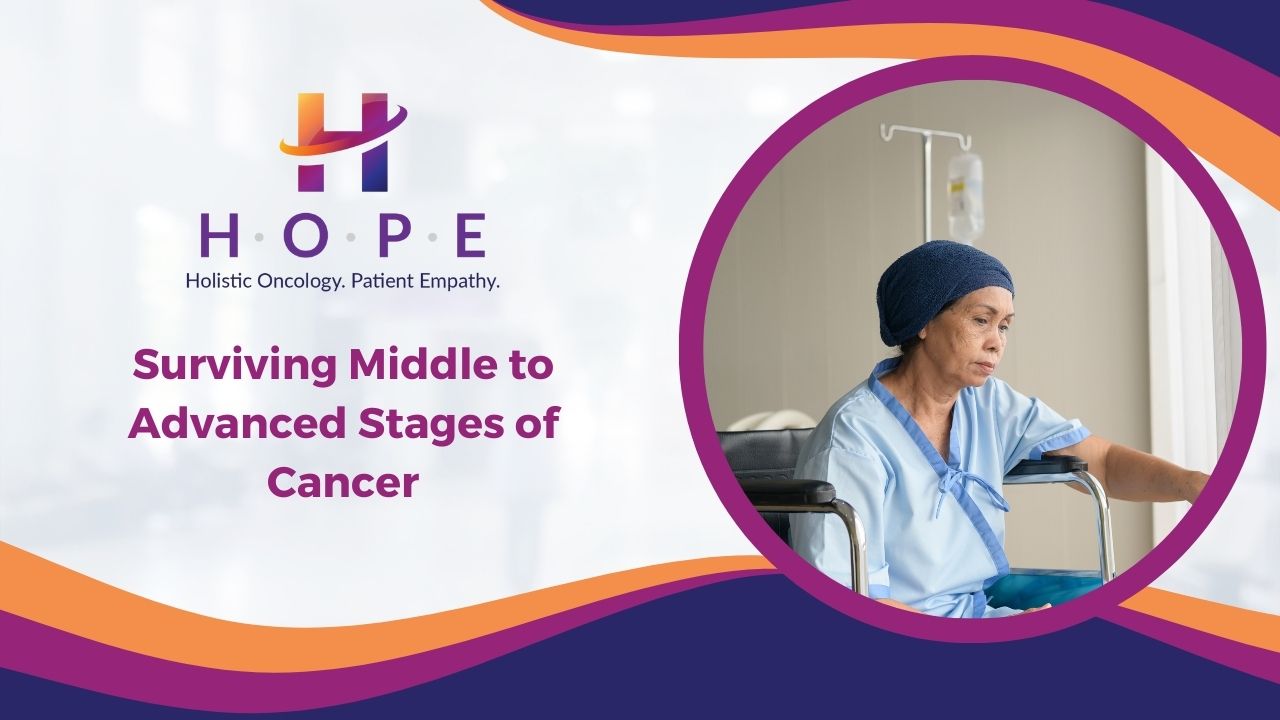Introduction:
A cancer diagnosis can be a life-altering event, but for those facing the middle to advanced stages of the disease, the journey becomes even more challenging. Coping with the physical, emotional, and psychological toll of cancer requires resilience, support, and a comprehensive approach to treatment. In this article, we will explore strategies for not only surviving but thriving during the middle to advanced stages of cancer.
Educate Yourself:
Knowledge is power. Understanding the specifics of your cancer, its progression, and available treatment options empowers you to make informed decisions. Consult with your medical team to gain insights into your diagnosis, potential side effects, and long-term prognosis. Being well-informed allows you to actively participate in your treatment plan and advocate for your needs.
Build a Strong Support System:
Surround yourself with a network of friends, family, and healthcare professionals who can provide emotional and practical support. Joining cancer support groups or connecting with others who have faced similar challenges can be immensely beneficial. Sharing experiences and leaning on the strength of others can help alleviate feelings of isolation.
Prioritize Mental Health:
The emotional toll of cancer is substantial, and caring for your mental health is crucial. Consider seeking counseling or therapy to address anxiety, depression, or any other emotional challenges that may arise. Mindfulness practices, meditation, and support from mental health professionals can contribute to a positive outlook and improved coping mechanisms.
Maintain a Healthy Lifestyle:
While the focus may be on medical treatments, adopting a healthy lifestyle is equally important. Pay attention to nutrition, engage in regular physical activity within the limits set by your medical team, and prioritize sufficient rest. A well-nourished body is better equipped to tolerate treatments and recover from their effects.
Open Communication with Your Healthcare Team:
Establish clear and open communication with your healthcare team. Discuss treatment options, potential side effects, and any concerns or questions you may have. Regular check-ins with your medical team can help them monitor your progress and adjust treatment plans accordingly.
Explore Complementary Therapies:
Complementary therapies such as acupuncture, massage, yoga, and meditation can offer relief from treatment side effects and improve overall well-being. However, it’s crucial to discuss these options with your healthcare team before incorporating them into your routine to ensure they align with your treatment plan.
Set Realistic Goals and Prioritize:
Establish realistic goals for yourself and prioritize tasks based on their importance and energy requirements. Recognize that it’s okay to ask for help when needed and to delegate responsibilities. This approach helps manage stress and conserves energy for the things that matter most.
Plan for the Future:
While living in the present is essential, planning for the future can provide a sense of control and purpose. Discuss with your healthcare team about long-term care plans, advanced directives, and your preferences for end-of-life care. Having these conversations early on can help ensure that your wishes are respected.
Conclusion:
Surviving the middle to advanced stages of cancer requires a holistic approach that addresses not only the physical aspects of the disease but also the emotional and psychological challenges. By being proactive in your education, building a strong support system, prioritizing mental and physical well-being, and maintaining open communication with your healthcare team, you can navigate this journey with resilience and hope. Remember that each person’s experience with cancer is unique, and finding what works best for you is key to overcoming the challenges that lie ahead.








